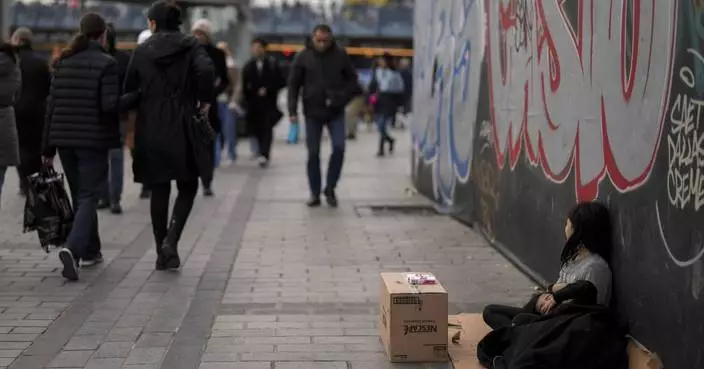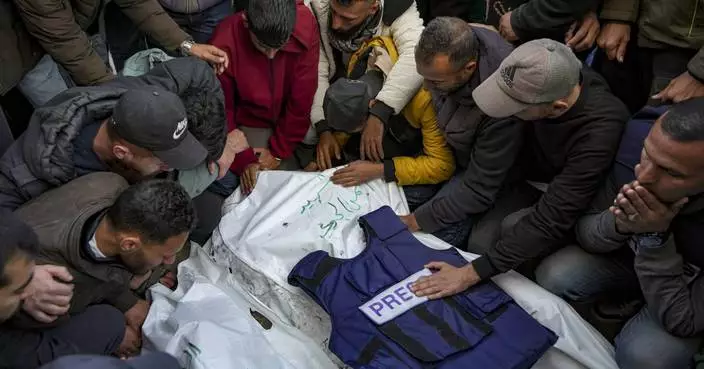WASHINGTON (AP) — Several federal and state agencies are investigating how racist mass texts were sent to Black people across the country in the wake of the presidential election this week.
The text messages invoking slavery were sent to Black men, women and children, prompting inquiries by the FBI and other law enforcement departments.
The anonymously sent messages were reported in several states, including New York, Alabama, California, Ohio, Pennsylvania, Maryland and Tennessee. The FBI said it has communicated with the Justice Department about the messages, and the Federal Communications Commission said it is investigating alongside federal and state law enforcement.
“These messages are unacceptable,” said a statement from FCC Chair Jessica Rosenworcel. She said the agency takes “this type of targeting very seriously.”
While the texts varied somewhat, they all instructed recipients to “board a bus” that would transport them to a “plantation” to work as slaves, officials said. They said the messages were sent to school-aged children and college students, causing significant distress.
Whoever sent the messages used a VPN to obscure their origin, Louisiana Attorney General Liz Murrill said Thursday morning.
Maryland Attorney General Anthony Brown said his office is fielding multiple reports of racist text messages being sent to Black residents, including children. Officials said the messages appear to be part of a nationwide campaign targeting Black people in the wake of the election.
“These messages are horrific, unacceptable, and will not be tolerated,” Brown said in a statement.
Brown said in an interview that it’s disturbing that children were targeted, sometimes by name, in mass texts that typically rely on datasets collected on adults, such as campaign donors or magazine subscribers.
“This is an intimidating, threatening use of technology” that likely violated multiple laws, Brown said. He said investigators will use "all the tools and resources available to us to hold accountable whoever is behind these text messages.”
Phone service provider TextNow said that “one or more of our accounts” were used to send the racist text messages and that it quickly disabled those accounts for violating its terms of service.
“As part of our investigation into these messages, we learned they have been sent through multiple carriers across the US and we are working with partners and law enforcement cooperatively to investigate this attack,” the Canada-based company said in a statement Friday.
Major providers AT&T and Verizon both said it was an industry-wide problem and referred comment Friday to the CTIA, a wireless communications trade group.
The U.S. wireless industry has been working in recent days to block thousands of the texts and the numbers sending them, said CTIA spokesperson Nick Ludlum. An industry group initiative is working with law enforcement and has “identified platforms bad actors used to send these messages," he said.
These racist text messages span the entire country, predominately targeting Black Americans, and more specifically Black children as young as middle schoolers.
Nicole, a mother in North Carolina who asked not to use her last name because of her profession, said she was disturbed and concerned by the messages her high school daughter showed her Thursday night. The texts instructed her to get ready to go back to the plantation. This was her daughter's first real experience with this type of racism, Nicole said, and as a parent she didn’t want to have to have these conversations with her kids.
“It’s like a slap in the face and it shows me that it is still an issue that has not changed at all,” she said.
Nicole said her daughter didn’t really say much after the text, deleted the message, and went to bed. As for Nicole, she said she had to sit and process her feelings. She said the situation was so shocking that it didn’t feel real, and she felt sad for her daughter.
“She has a lot of friends of different races. She’s the one that doesn’t see color and she doesn’t see a difference. So, I feel like for her, it really showed her that everyone isn’t like her," Nicole said. "Racism is still a very prominent thing in our country right now.”
Nicole said that parents have to be vigilant, especially with older children, and have the tough conversations, even if you don’t want to or feel like you have to.
“Whatever way it makes your child feel, approach it with open arms and be very receptive to it and just take it day by day.”
Several historically Black college students received a message with a similar tone but varied wording. Dr. Robert Greene II, an assistant professor of history at Claflin University, said he heard stories from his students about it, as well as from campus officials. Greene said he thinks the timing of this mass messaging is not only intentional, but the focus on young Black students is as well.
“It’s a way to say to, especially Black college students, that this is the world they are now living in, that this kind of outright racist intimidation is coming back to the norm in American society and American politics,” Greene said. “No doubt about it, fear and intimidation are the heart of what’s going on with these text messages.”
This type of browbeating toward the Black community isn’t a new phenomenon. Physical violence was how intimidation was done in the early 1900s and around the time of World War II, it was done through suppressive methods like poll taxes, Greene said.
But what makes this time different is the form of communication and the introduction of technology makes this a more sinister tactic, he added.
“The technology that we take for granted, that brings us all together via the Internet, via social media, via cell phones, is now being used to also intimidate folks,” Greene said. “It does add to the atmosphere of fear and paranoia. Certainly, there’s that sense of, well, if they can text message me, how else can they get in touch with me? What else do they know about me personally?”
Those responsible for sending the messages took advantage of a bulk-messaging industry designed to help legitimate marketers reach people on their phones.
“This is the primary way now that most Americans will communicate,” said Cori Faklaris, an assistant professor of software and information services at the University of North Carolina at Charlotte. “So people who need to advertise or market services, they go where the people are. Unfortunately, the scammers and the haters also follow suit.”
Faklaris said they also likely made use of collections of personal data that can be bought relatively cheaply on some corners of the internet. When combined with other data, such as places of residence or past purchases, Faklaris said it can be easy to use machine-learning algorithms to infer demographic information.
“All of this means it might be easier than most people realize to make a really good guess about the race or ethnicity of the person attached to that phone number,” she said.
Unlike email or social media, the U.S. regulates text messages like a utility and tries to remain neutral about content shared via text. As a result, there’s little filtering that could have blocked this week’s spree of racist messages, Faklaris said. There’s no universal system in the U.S. to flag texts as suspicious or unwanted before they are viewed, she said.
But after an explosion of texting scams that accelerated during the pandemic, Faklaris said law enforcement agencies have developed better investigative tools and it should be “relatively easy for the authorities to trace this particular attack.”
Matt O'Brien reported from Providence, Rhode Island. Lea Skene in Baltimore contributed.
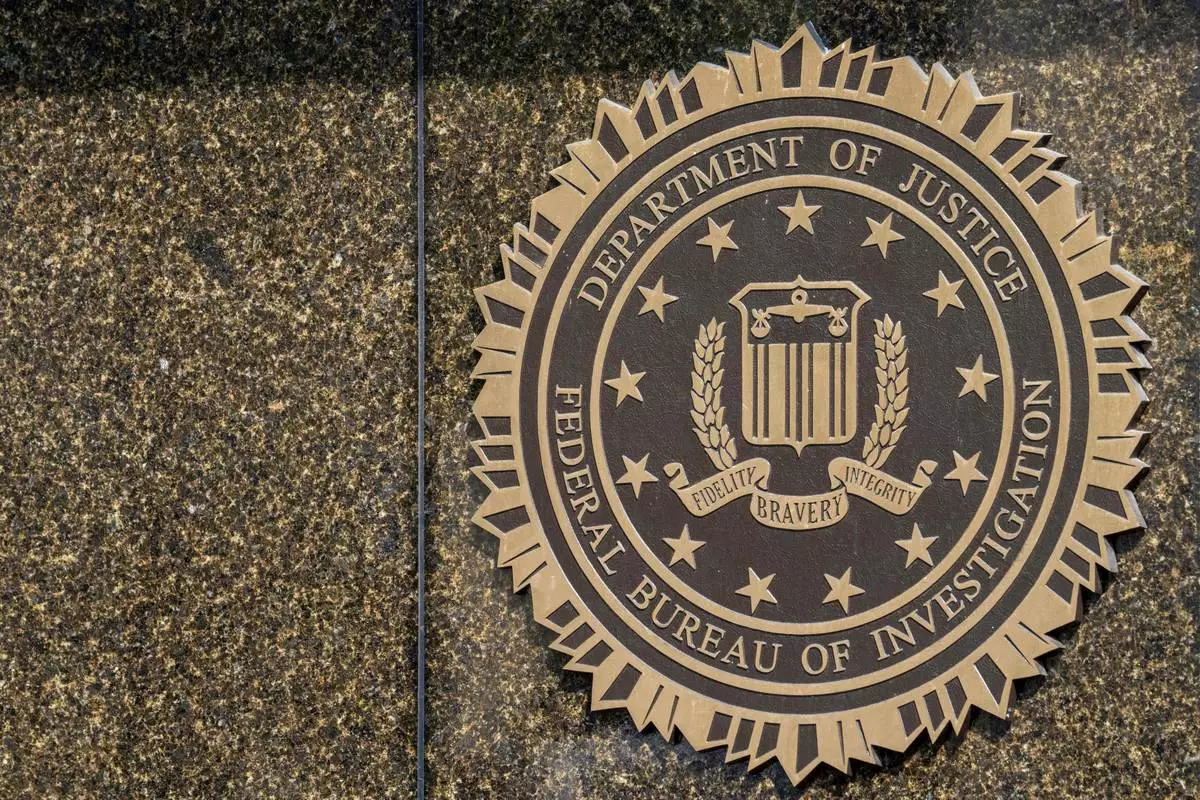
FILE - The seal on the J. Edgar Hoover FBI Building is seen June 9, 2023, in Washington. (AP Photo/Alex Brandon, File)
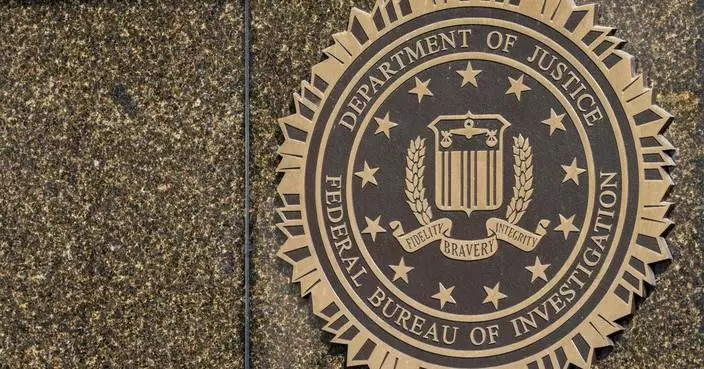
FBI, Justice Department investigating racist mass texts sent following the election
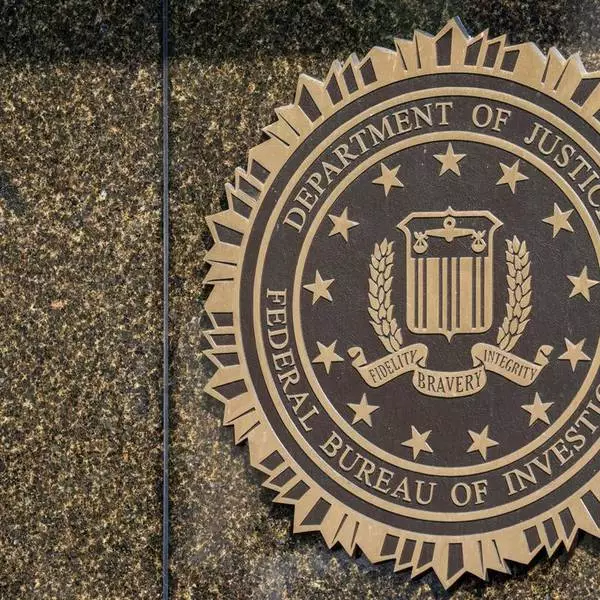
FBI, Justice Department investigating racist mass texts sent following the election
DENVER (AP) — The U.S. Center for SafeSport abruptly fired one of its investigators last month after learning he'd been arrested for stealing money confiscated after a drug bust he was part of during his previous job as a police officer.
Jason Krasley left his job with the Allentown Police Department in Pennsylvania in 2021 and was hired by the Denver-based SafeSport center to look into sensitive cases involving sex abuse and harassment.
Among Krasley's cases was one with Sean McDowell, who had filed a report to the center accusing a member of his Seattle-based recreational rugby club of stalking and harassment. McDowell said it took the center, which has struggled with timely handling of complaints, about eight weeks to assign an investigator to the case.
That investigator turned out to be Krasley, who stopped responding to emails from McDowell a few weeks after they first spoke. Around then, McDowell got a terse email from the center's assistant director of investigations, Daniel Kast, who said he was “writing to advise you that Jason Krasley is no longer employed” by the center, and that a new investigator would be assigned.
McDowell did some digging and saw news reports that Krasley had been arrested and charged with theft and receiving stolen property for allegedly stealing $5,500 that had been confiscated from a drug bust in Allentown in 2019. The criminal case in Pennsylvania still has not been resolved.
“I went back and double-checked it. It was just disbelief, because I'm thinking, ‘There’s no way this could be the same guy,'” McDowell said. “I'm still struggling to wrap my mind around it because it just seems so off from what their stated mission is.”
The SafeSport Center was established in 2017 to deal with sexual-misconduct, harassment and similar cases in sports with an Olympic connection, from the elite level down to the grassroots.
At last count, it had around 77 employees on its response and resolutions team — 36 of whom are on the center's investigations team — and the center was receiving approximately 155 reports per week. While not every report ends up as a fully investigated case, the numbers speak to an ever-growing catalogue of cases that the agency, with an annual budget of around $21 million, is tasked with resolving.
Embedded within that issue are the challenges that come with finding qualified investigators to ask delicate questions of both accusers and those accused of misconduct. The center said it hires subject-matter experts from a variety of sources including law enforcement, child protective services, Title IX, and other relevant fields.
“Although we value our relationship with law enforcement, nobody is above the law," the center’s CEO, Ju’Riese Colon, said in an emailed statement to The Associated Press.
The center said it conducts multiple interviews and a “comprehensive background check” of potential employees by an independent third party “known nationally for its work in screening and vetting candidates.” Every year, the center conducts a search for criminal and sex-offender history for active employees.
“As a CEO, I am profoundly disappointed that a former staff member has been accused of such misconduct,” Colon said. “We take this matter seriously and are assessing the situation to determine what, if any, additional vetting could have prevented this individual from being eligible for hire.”
Public records show Krasley worked as a detective/task force officer for the Allentown police from 2002-21. His 2024 arrest came more than five years after the alleged theft.
It came out of a May 2019 drug bust on a barbershop where police seized cocaine and $16,000 in cash.
The grand jury presentment that led to the arrest revealed Krasley was one of the officers who counted the money and was later inside the van where it was stored. Back at the station, when some of the money went missing, Krasley became argumentative and would not submit to a personal search, according to the presentment.
Krasley did not respond to emails and text messages from AP seeking comment.
Krasley's arrest and dismissal from the center raises the question of what to do with the cases he handled during his time as an investigator there. The center did not provide a specific number of cases Krasley handled.
Among those whose cases were assigned to the former cop is Kirsten Hawkes, a fencer who ran into multiple frustrations with the center after reporting a claim that a former coach of hers forcibly kissed her after a meeting at a hotel bar.
Hawkes said Krasley came off as very sympathetic to her situation when they met, and “he'd sort of call me and talk about other things, like family, or other cases. We would talk for hours.”
Hawkes said she was grateful that someone was listening to her after her traumatic episode. But she also described Krasley as overly eager to resolve the case once it got to arbitration and unwilling to consider her abuse allegations against the same person from when Hawkes was a child.
When Hawkes heard that Krasley had been arrested and fired, she started wondering if her case and others were handled appropriately.
“They have the resources to call a police department and say ‘Hey we’re hiring him for a semi-government job handling sensitive information, anything we should know?'” Hawkes said. “It might not show up on a background check, but they should at least do the due diligence on digging a little bit further.
“It puts everything under a different lens, completely.”
The center said it was reviewing the cases Krasley was involved in, and currently has no indication any of them were mishandled. It is contracting with an external firm to conduct an audit of his cases.
Since Krasley's dismissal, McDowell, the rugby player, has had his case reassigned to a new investigator who he said “has been good" so far.
Still, the clock is ticking. The 34-year-old player says he was retaliated against and suspended by his rugby team in Seattle after he asked leaders to take action against the person he said was stalking him. The retaliation included sending details of his case to another rugby club in San Francisco, which also tried to bar him from playing.
“Because of this whole smear campaign, people are hostile to me,” McDowell said. "What the SafeSport Center doesn't understand is, this is actually my day-to-day life. It's not just the people I'm playing rugby with, because word spreads. And they just don't seem to really care, or take it seriously.”
McDowell brought the case in September. Heading into the Christmas holiday, he says the SafeSport Center had not treated his case with urgency and was no further along in getting his complaint resolved than when he initiated it.
“The public-facing comments seem to be that they're this beacon of hope and optimism," McDowell said. "Then, every time I read a new story about them, I keep thinking, ‘The actions from SafeSport don’t align with any of this.'”
This story has been corrected to show the center was receiving approximately 155 reports per week, not per month.
AP sports: https://apnews.com/hub/sports

Recreational rugby player Sean McDowell, whose SafeSport case investigator Jason Krasley was fired after being arrested for stealing drug money in his previous job as a police officer, poses for a portrait Wednesday, Dec. 18, 2024, in Seattle. (AP Photo/Lindsey Wasson)
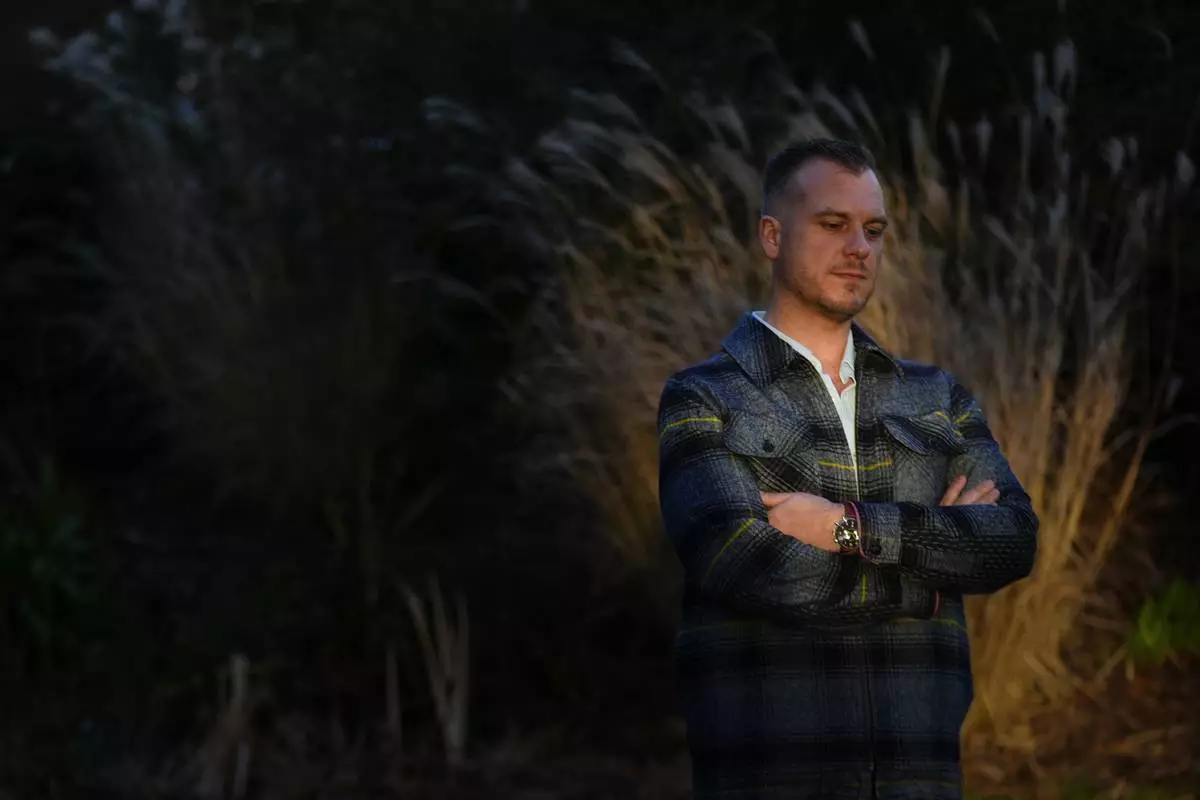
Recreational rugby player Sean McDowell, whose SafeSport case investigator Jason Krasley was fired after being arrested for stealing drug money in his previous job as a police officer, poses for a portrait Wednesday, Dec. 18, 2024, in Seattle. (AP Photo/Lindsey Wasson)
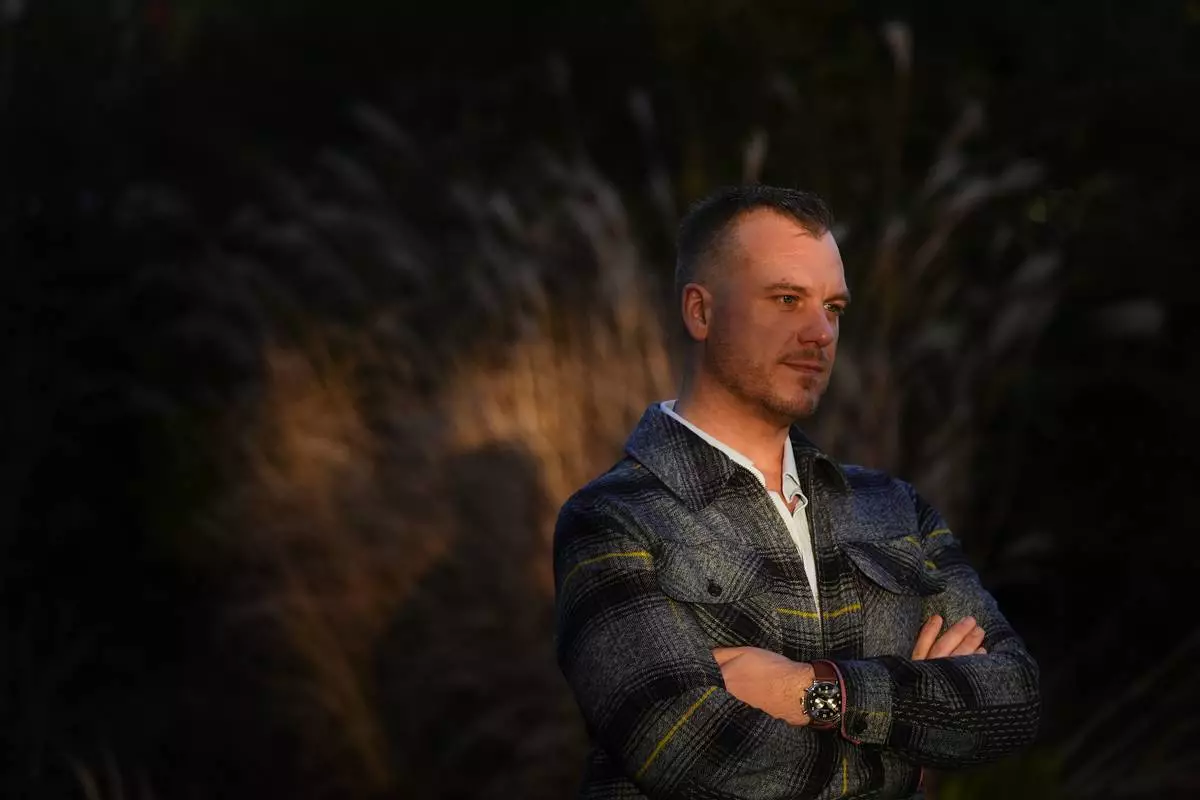
Recreational rugby player Sean McDowell, whose SafeSport case investigator Jason Krasley was fired after being arrested for stealing drug money in his previous job as a police officer, poses for a portrait Wednesday, Dec. 18, 2024, in Seattle. (AP Photo/Lindsey Wasson)
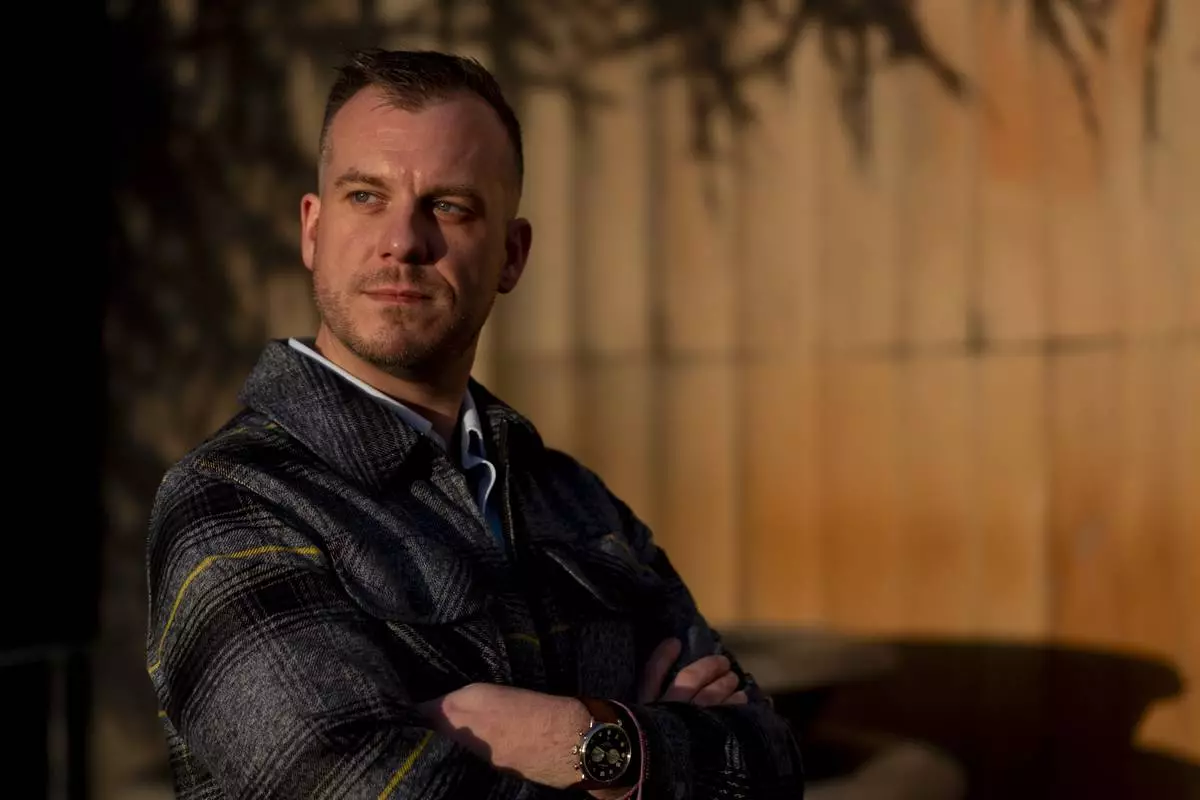
Recreational rugby player Sean McDowell, whose SafeSport case investigator Jason Krasley was fired after being arrested for stealing drug money in his previous job as a police officer, poses for a portrait Wednesday, Dec. 18, 2024, in Seattle. (AP Photo/Lindsey Wasson)
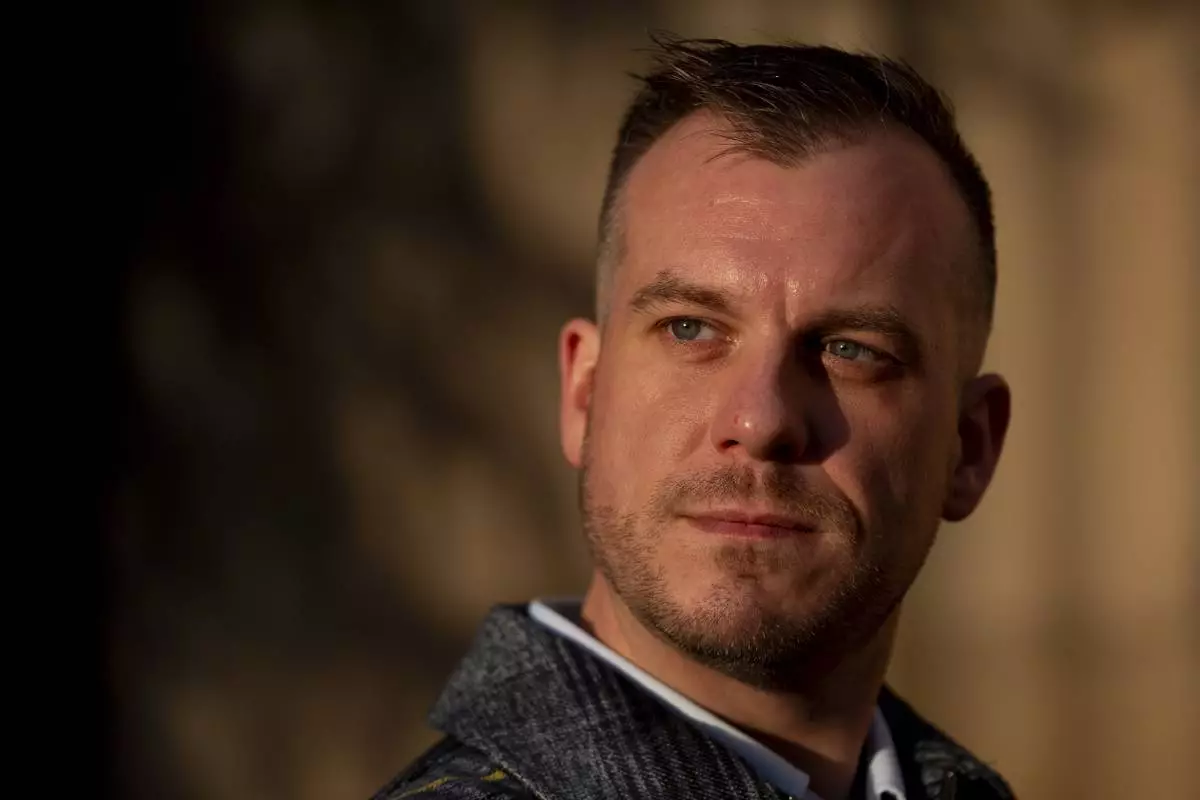
Recreational rugby player Sean McDowell, whose SafeSport case investigator Jason Krasley was fired after being arrested for stealing drug money in his previous job as a police officer, poses for a portrait Wednesday, Dec. 18, 2024, in Seattle. (AP Photo/Lindsey Wasson)
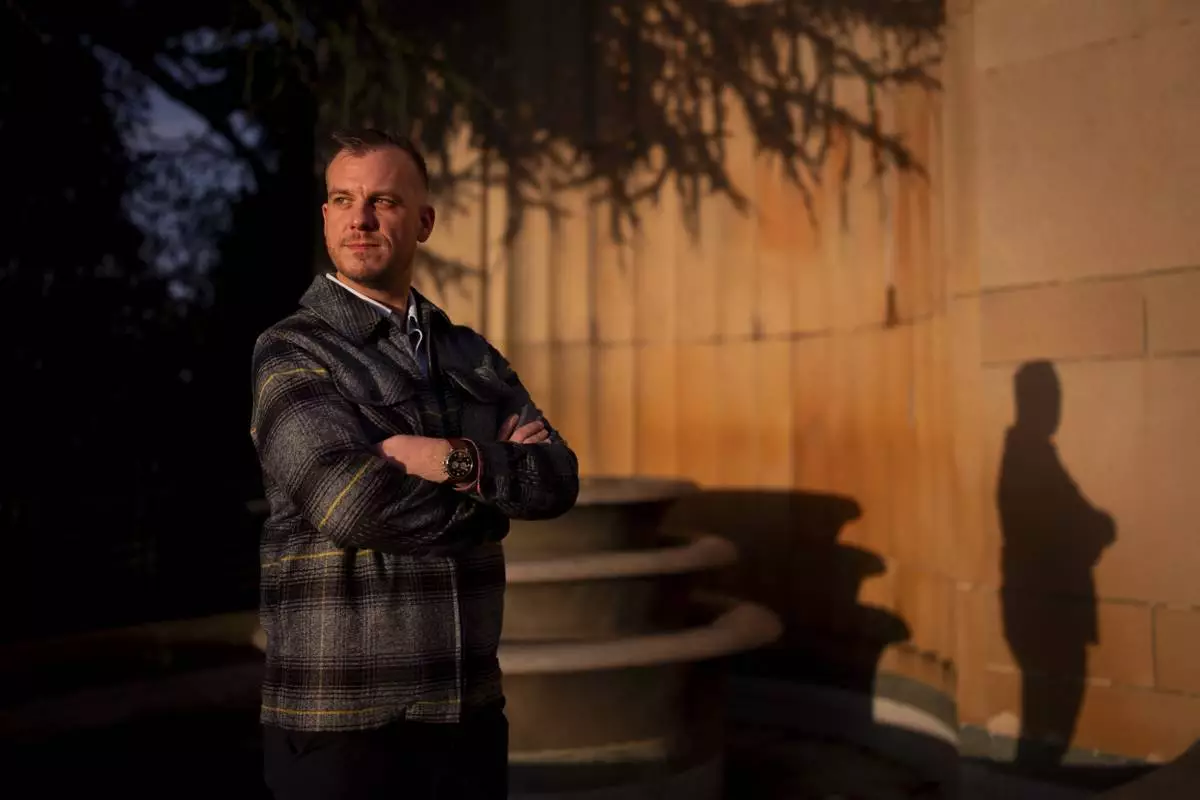
Recreational rugby player Sean McDowell, whose SafeSport case investigator Jason Krasley was fired after being arrested for stealing drug money in his previous job as a police officer, poses for a portrait Wednesday, Dec. 18, 2024, in Seattle. (AP Photo/Lindsey Wasson)
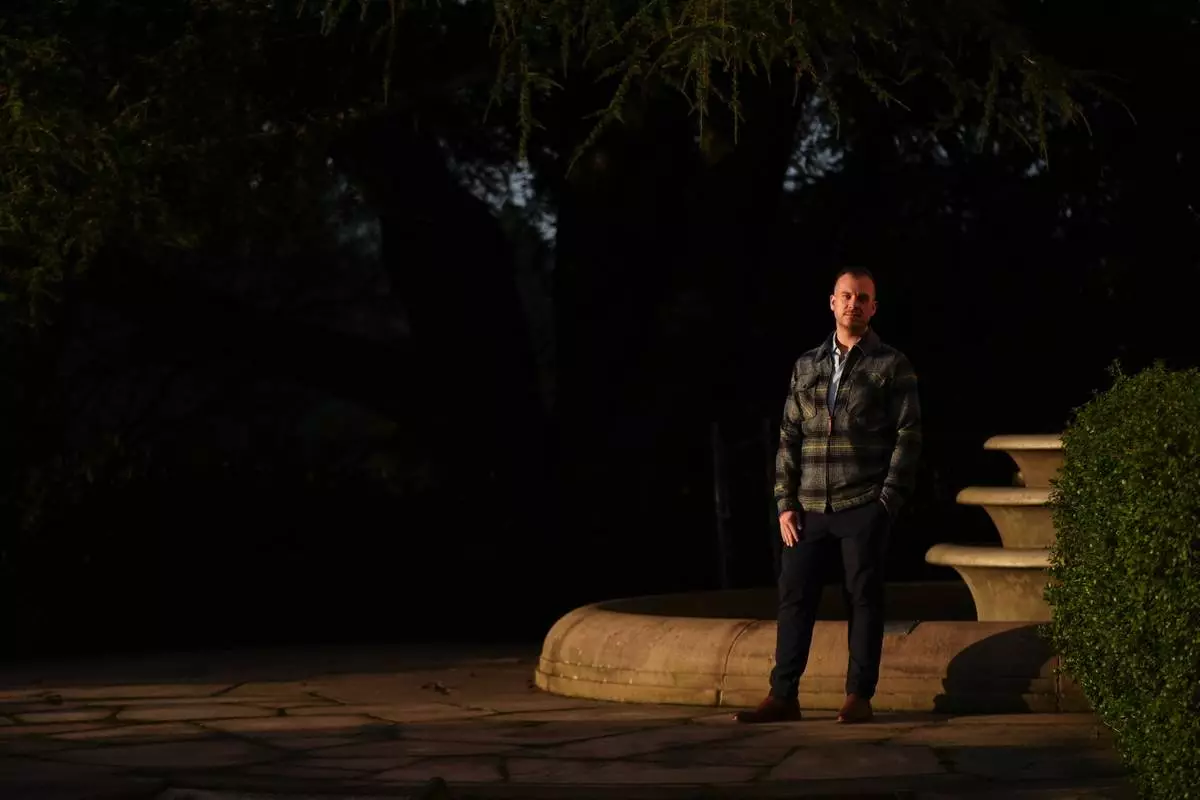
Recreational rugby player Sean McDowell, whose SafeSport case investigator Jason Krasley was fired after being arrested for stealing drug money in his previous job as a police officer, poses for a portrait Wednesday, Dec. 18, 2024, in Seattle. (AP Photo/Lindsey Wasson)
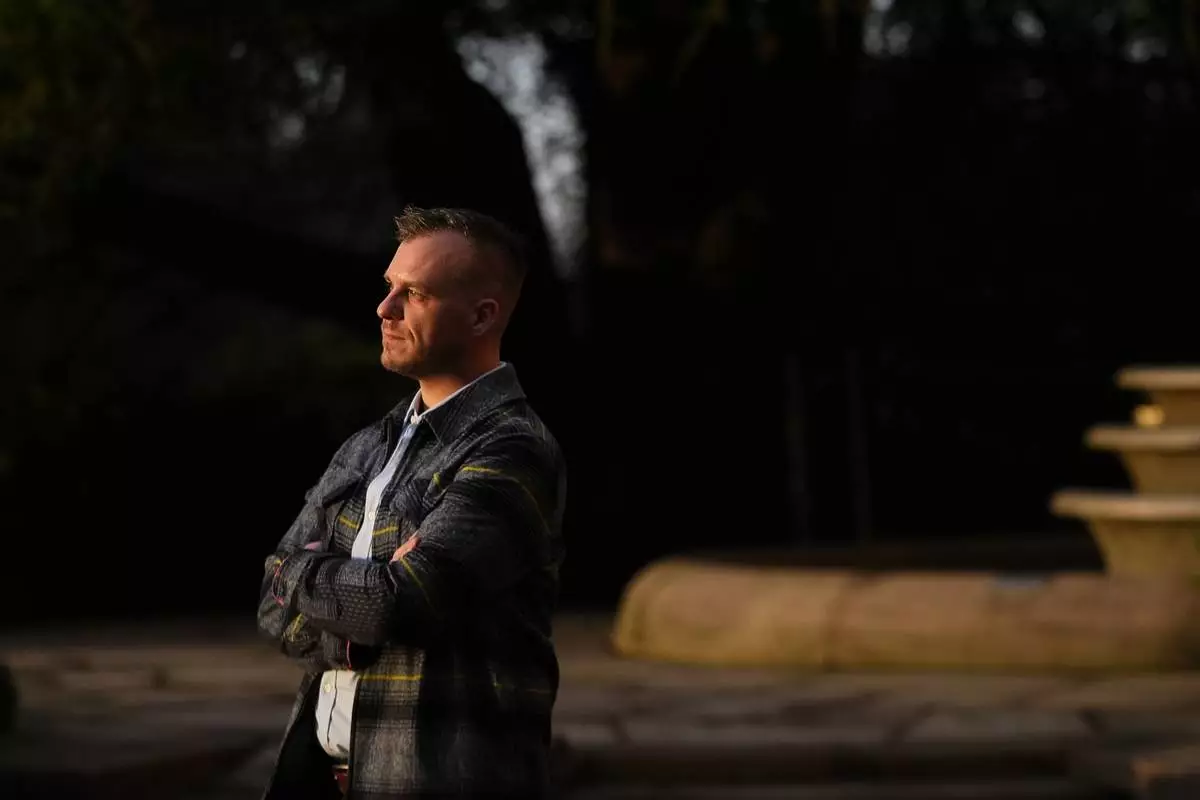
Recreational rugby player Sean McDowell, whose SafeSport case investigator Jason Krasley was fired after being arrested for stealing drug money in his previous job as a police officer, poses for a portrait Wednesday, Dec. 18, 2024, in Seattle. (AP Photo/Lindsey Wasson)
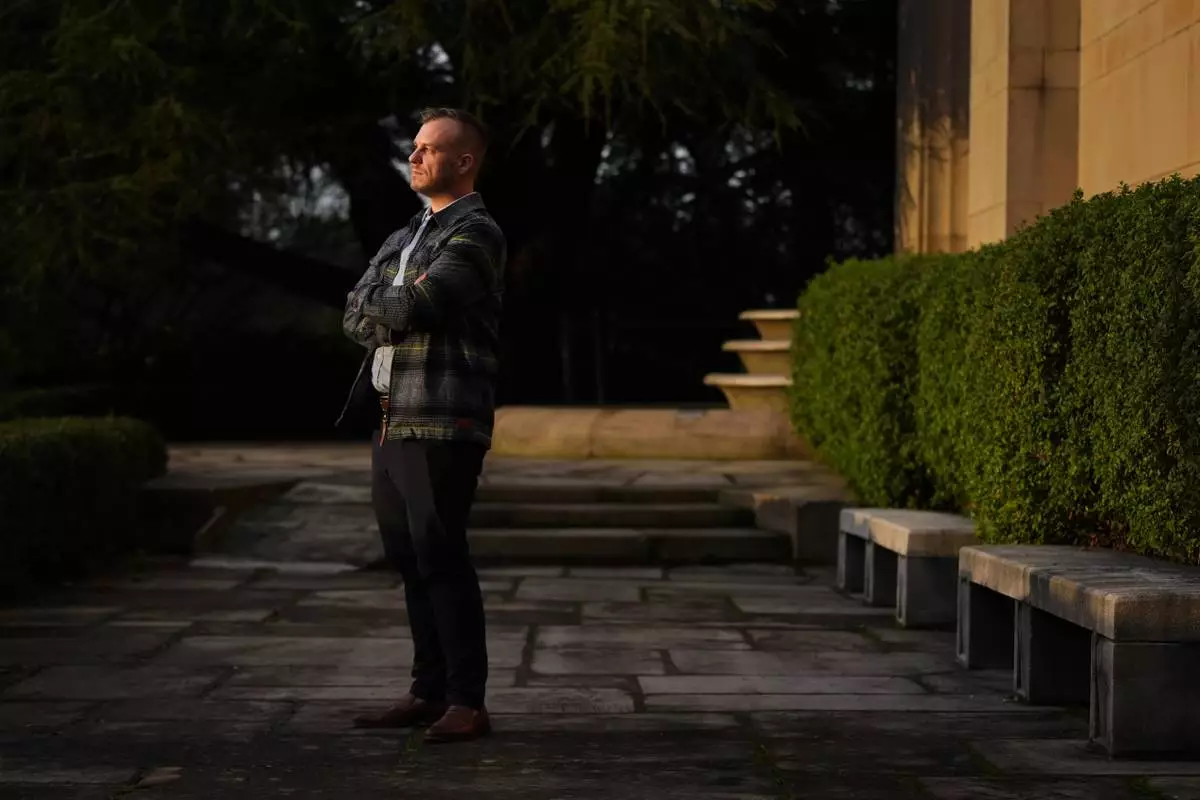
Recreational rugby player Sean McDowell, whose SafeSport case investigator Jason Krasley was fired after being arrested for stealing drug money in his previous job as a police officer, poses for a portrait Wednesday, Dec. 18, 2024, in Seattle. (AP Photo/Lindsey Wasson)

Recreational rugby player Sean McDowell, whose SafeSport case investigator Jason Krasley was fired after being arrested for stealing drug money in his previous job as a police officer, poses for a portrait Wednesday, Dec. 18, 2024, in Seattle. (AP Photo/Lindsey Wasson)
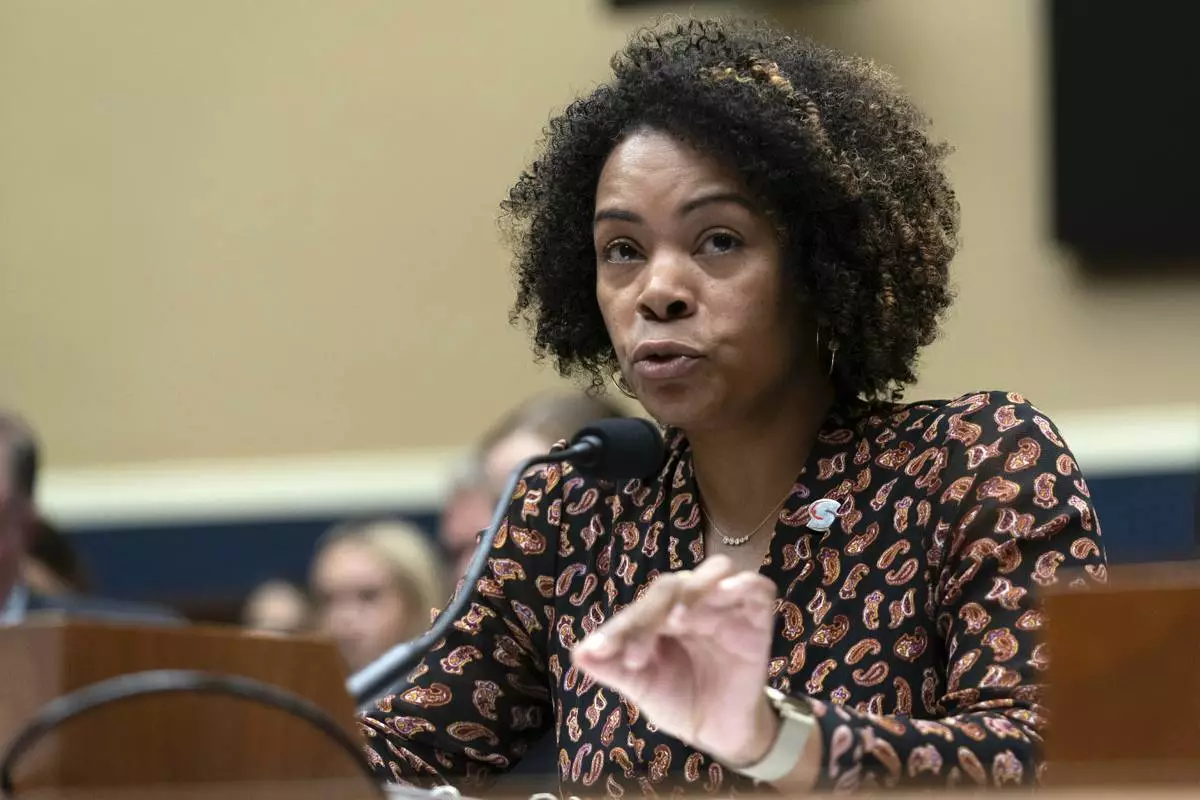
FILE - U.S. Center for SafeSport CEO Ju'Riese Colón testifies during The Commission on the State of U.S. Olympics and Paralympics hearing on Capitol Hill in Washington, Wednesday, Sept. 6, 2023. (AP Photo/Jose Luis Magana, File)




















